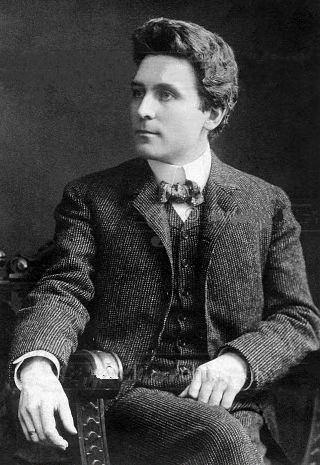Siewert's father Hermann was a famous chemical scientist, and a university professor in Argentina at the time of
Hans Siewert's birth. The family returned to Germany when Hans was 4 years old.
He became a pharmacist in Wrocław/Breslau. When his beautiful voice was noticed, he studied singing, and in 1899 made his
debut in Cologne, where he stayed until 1903. Then he went back to Breslau, this time as an opera tenor (until 1908). Next, he
was in Hamburg for two years, 1911–16 in Karlsruhe, 1916/17 in Essen and 1919–23 in Königsberg/Kaliningrad.
For a brief time, he was married to a Jewish concert singer. They had admittedly divorced back in 1911, but he had
a daughter from that marriage; nonetheless, he became a member of the Nazi party already in 1932, i.e. before they came to power.
His daughter, Eva Siewert, was "half-Jewish" under the racist Nazi laws; a Lesbian; a leftist and avid antifascist; and an
extremely successful radio journalist in the tiny neighbour state of Luxembourg, where she did her best to fight the Nazis
(her services could be heard in considerable parts of Germany). After she got trapped in Berlin when trying to get her passport
renewed in 1938 (which was denied), she lived precariously in every sense, and continued to fight the Nazis as best she could,
even in Germany. And while she struggled for her economic and
physical survival, and lived in secret life partnership with a (fully Jewish, and hence constantly hiding) woman, her Nazi
father lived placidly in the very same city of Berlin. Some biographies and some people just make you wonder, or shudder... (Eva
Siewert was later on twice jailed by the Nazis as a political prisoner, and her life companion was deported to Auschwitz and
murdered.)
Coming back to Hans Siewert, the tenor... his most important roles were Jacquino, Lyonel, Tamino, Sylvain (Les dragons de
Villars), Phöbus (Notre Dame by Schmidt), David, Chapelou, Duca and Loge. In the last years of his career, he sang comprimario
parts only, and also worked as a stage director. He was a successful concert tenor, as well, noted for his performance of
Mahler's Das Lied von der Erde (which is rather not compatible with his Nazi party membership, either).
Reference 1; reference 2; reference 3: Kutsch & Riemens
Picture source
Source for the recordings
